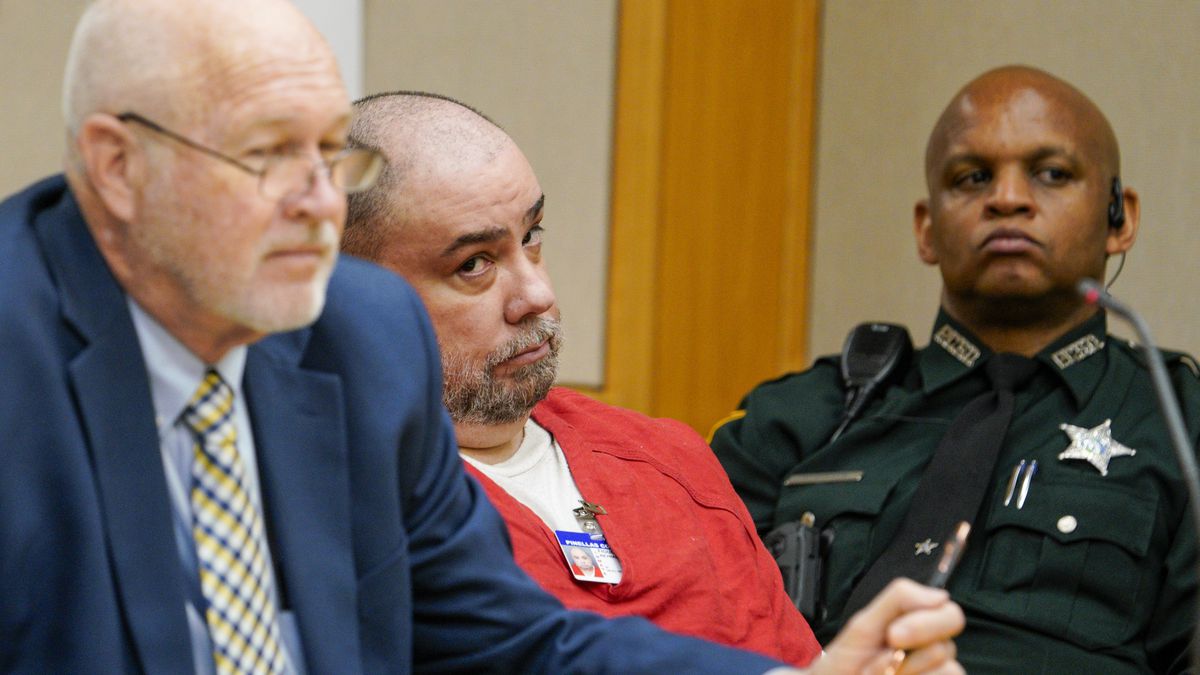When a man was convicted of the 2013 murders of two individuals on a houseboat in St. Petersburg, the Florida Supreme Court later overturned his sentence. Consequently, the case was remanded to the trial court for a new penalty trial. The proceedings to determine his fate, whether he will face execution, commenced on Monday.
Reynaldo Figueroa-Sanabria, garbed in a loose-fitting red jail uniform, was represented by Keith Hammond and Daniel Hernandez. Instead of seeking the death penalty, he pleaded for a life sentence and requested a trial without a jury. This decision places the final judgment on Figueroa-Sanabria’s sentence in the hands of Judge Pat Siracusa.
Aged 51, Figueroa-Sanabria was given an opportunity for a retrial after concerns were raised by Florida justices regarding his legal representation during the penalty phase of the initial trial. He appeared in court in Clearwater for the new penalty trial, seeking a life sentence for his involvement in the 2013 stabbing deaths of John Travlos and Germana Mori.
The tragic incident occurred on Travlos’ houseboat in the early hours of April 12, 2013, where Figueroa-Sanabria, who had been working as a handyman for Travlos, committed the heinous act. Prosecutors alleged that Figueroa-Sanabria murdered the couple in a bid to steal their jewelry. He gained entry through the boat’s sliding glass door, coerced Travlos to open a safe containing valuables at knifepoint, and ultimately took the lives of both victims.
During Monday’s testimonies, witnesses shed light on Figueroa-Sanabria’s frustrations with Travlos and Mori due to unpaid work, leading to the tragic events. Subsequent testimonies highlighted the disappearance of the jewelry following the couple’s demise.
In 2019, Figueroa-Sanabria was convicted based on substantial evidence, including his DNA on duct tape used to bind the victims and Travlos’ blood discovered inside the van driven by Figueroa-Sanabria’s girlfriend to pick him up after the incident.
The legal proceedings, which spanned six years, culminated in a penalty phase where Figueroa-Sanabria expressed his preference not to present certain evidence that could potentially influence the jury against him, as per the Supreme Court opinion. This led to a misrepresentation of his options by Judge Pat Siracusa, resulting in the overturning of the death sentence while upholding the conviction.
The final decision on whether Figueroa-Sanabria will receive a life sentence or the death penalty rests with Judge Siracusa, with the trial anticipated to continue into the following week.
This report includes contributions from Times staff writer Jack Prator.
